|
One of the most famous scenes in the Disney classic animated movie Dumbo is when the baby elephant accidentally gets drunk. The idea of those giant mammals being inebriated has tickled us for a long time, with mythical stories about wild elephants going off on drunken rampages and passing out in the middle of a savanna. For a long time, scientists had assumed that elephants were too large to get drunk from rotting fruits. But today in The Conversation Canada, Mareike Janiak of the University of Calgary tells us about new research that
shows the elephants lack the ability to process ethanol, which explains why they can get tipsy.
Also today:
Regards,
|
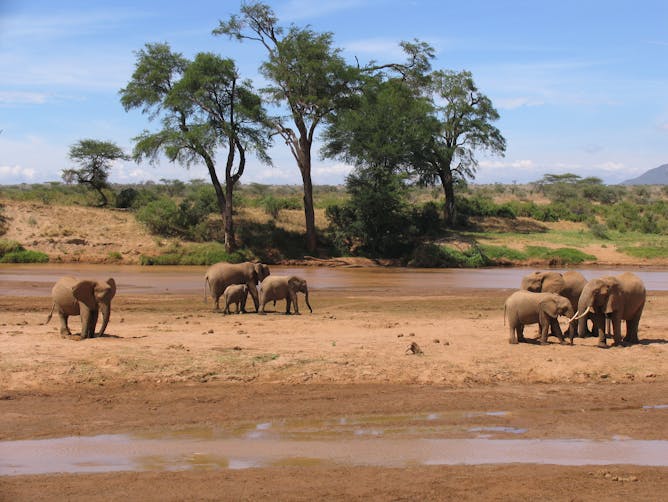
Scientists had assumed that elephants could not become inebriated because of their size.
(James Higham)
Mareike Janiak, University of Calgary
Elephants don't have the enzyme that allows humans to metabolize alcohol. This means that anecdotes about elephants getting drunk from rotten fruit may very well be true.
|
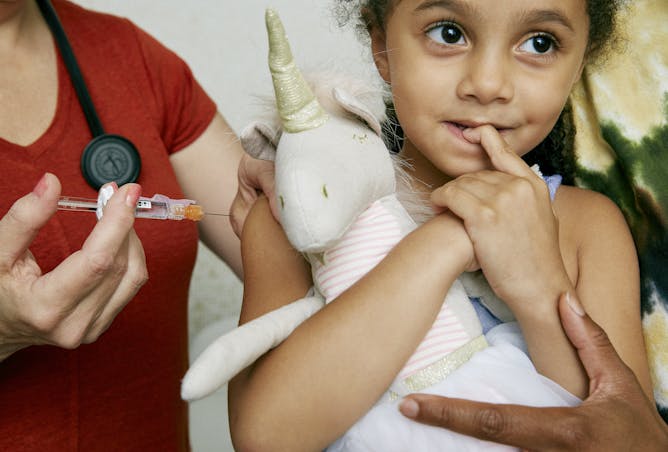
Strategies to ease pain and fear during injections are recommended by health organizations such as the Canadian Paediatric Society.
(Heather Hazzan, SELF Magazine/flickr)
Kathryn Birnie, University of Calgary
These strategies for easing needle pain and fear make vaccinations and other injections easier for parents and children. They are simple and helpful for all ages, from infants to adults.
|

It’s hard to read or decipher body language and microexpressions through a smartphone screen.
(Shutterstock)
Anna Rudkovska, Western University; Wuyou Sui, Western University
As social distancing continues, we've increasingly incorporated online and digital communications into our social life. But these technologies can't compensate for body language or touch.
|
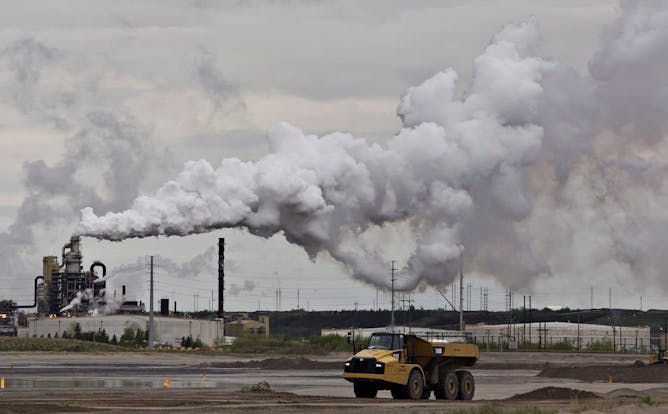
Alberta’s new ministerial orders modify some industrial environmental reporting requirements in the province.
THE CANADIAN PRESS/Jason Franson
Chloe Alexander, University of Guelph; Anna Stanley, University of Guelph
Alberta has modified its environmental rules, becoming the first to do so during the COVID-19 pandemic.
|

Condos and apartment buildings are seen in downtown Vancouver, B.C., in February 2017. The coronavirus and the ensuing recession are delivering a one-two punch to condominium owners and dwellers.
THE CANADIAN PRESS/Darryl Dyck
Randy K. Lippert, University of Windsor; Stefan Treffers, York University, Canada
The condominium model has had lingering ailments since its birth, and the new grim reapers of coronavirus and financial strife could bring about its demise.
|
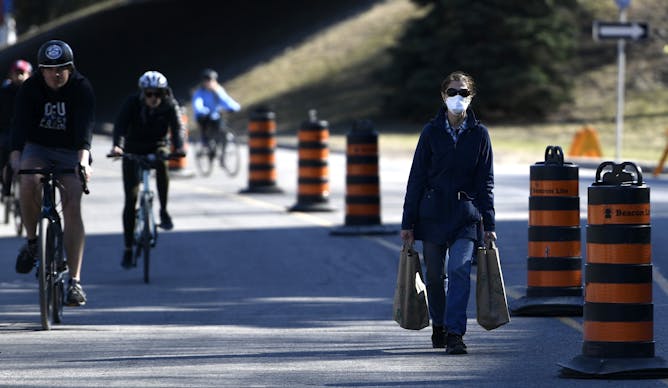
A person carries groceries while walking among cyclists on Queen Elizabeth Drive in Ottawa on April 18, 2020.
THE CANADIAN PRESS/Justin Tang
Jino Distasio, University of Winnipeg
Rebuilding cities post-pandemic will start with neighbourhood hope, and strong social and community planning.
|

A nurse puts on personal protective equipment before entering a patient’s room in a COVID-19 intensive care unit.
THE CANADIAN PRESS/Jonathan Hayward
Catherine Varner, University of Toronto
In Ontario, the task of deciding which treatments to use for COVID-19 patients falls to two committees that weigh the evidence and choose which drugs to use, and how to manage critical illness.
|
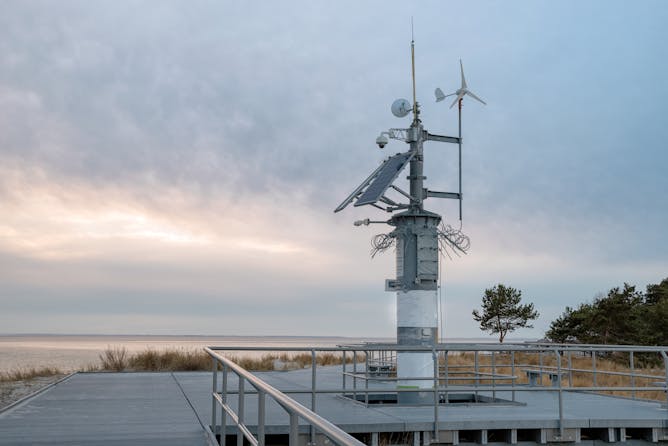
En ce qui concerne les observations sur terre, l’Organisation météorologique mondiale (OMM) compte sur des données prises par plus de 10 000 stations en surface, 1000 stations aérologiques et 3000 aéronefs commerciaux, entre autres.
shutterstock
Marta Moreno Ibáñez, Université du Québec à Montréal (UQAM)
L’Organisation météorologique mondiale (OMM) a tiré la sonnette d’alarme en raison de l’impact de la pandémie sur les données d’observations qui alimentent les modèles de prévision météorologique.
|